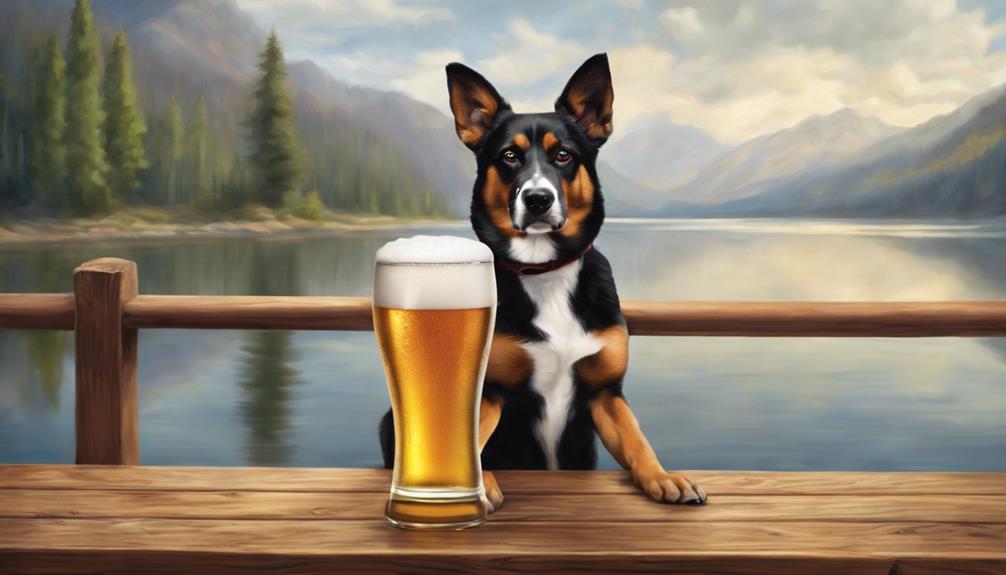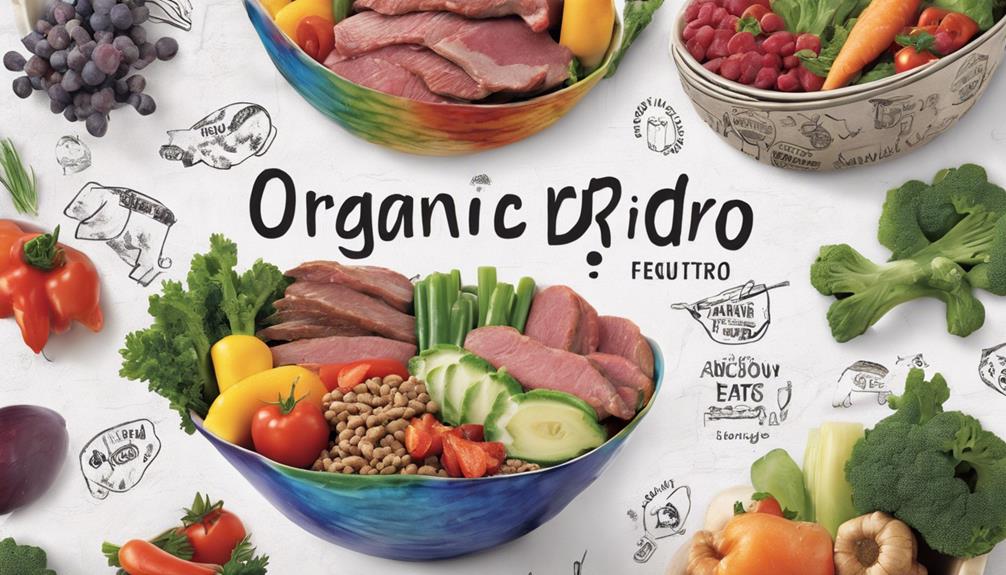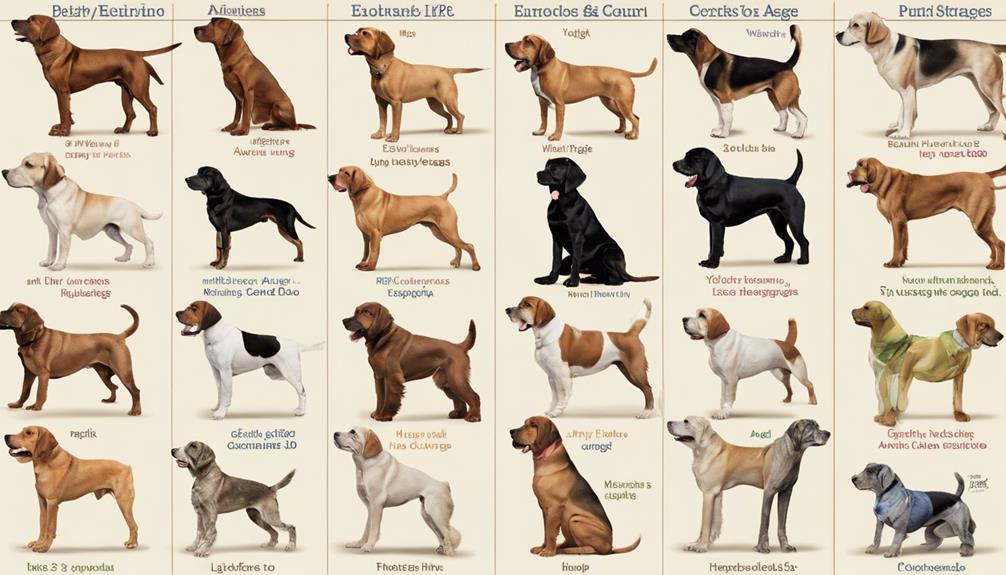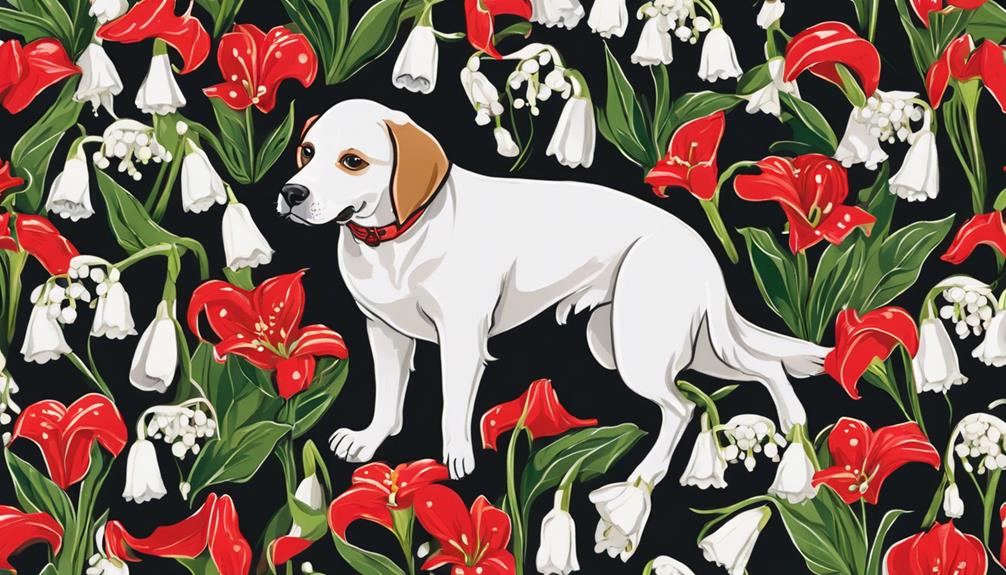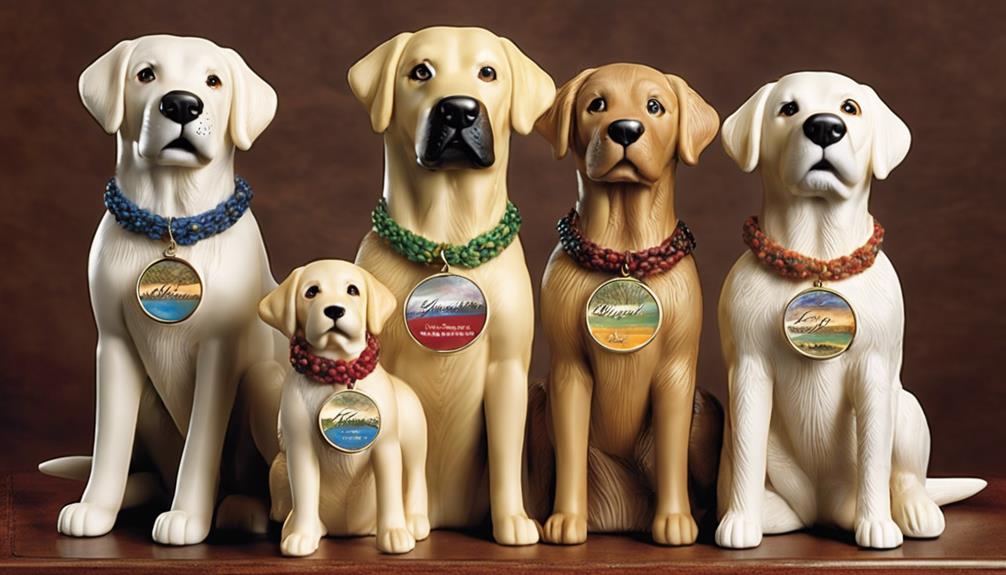Dogs should not have beer. Their bodies process alcohol fast, leading to serious health risks. Ingredients like hops can cause vomiting and diarrhea. Alcohol poisoning affects the nervous system and can harm coordination. Long-term effects impact health to a great extent. Dogs might like beer due to its sweet taste and association with positive experiences. Symptoms of alcohol poisoning include confusion, balance issues, and fatigue. Prevent beer access by securing it away from dogs. Dog beer is alcohol-free, safe, and can have beneficial nutrients. Moderation is key for dogs' safety. Learn more about dogs and alcohol's effects on health.
Key Takeaways
- Dogs should not have beer due to health risks like alcohol poisoning and toxic ingredients like hops.
- Symptoms of alcohol ingestion include vomiting, confusion, and coordination issues.
- Prevent dogs from accessing beer by securely storing alcoholic drinks and supervising them during social gatherings.
- Light beer contains ethanol, which is toxic to dogs, while dog beer is a safe, alcohol-free alternative.
- Dog beer can be served in moderation with beneficial ingredients like glucosamine, but should not replace a balanced diet.
Health Risks of Giving Dogs Beer
Giving dogs beer poses serious health risks due to their rapid metabolism of alcohol and the toxic ingredients like hops that can lead to symptoms such as vomiting, diarrhea, and coordination issues. Alcohol poisoning can occur quickly in dogs, affecting their central nervous system and potentially leading to severe consequences. If a dog shows any symptoms of alcohol ingestion, veterinary assistance should be sought immediately to prevent further complications.
Long-term effects of alcohol consumption can have lasting impacts on a dog's health, making it essential to avoid exposing them to such risks.
To prioritize the well-being of our furry friends, it's vital to emphasize their hydration with plain water instead of offering beverages like beer that can be harmful. Consulting a veterinarian for guidance on suitable hydration options for dogs is crucial in preventing potential health issues associated with alcohol consumption. By being mindful of the dangers of alcohol and toxic substances like hops, we can help keep our canine companions safe and healthy.
Why Do Dogs Like Beer?
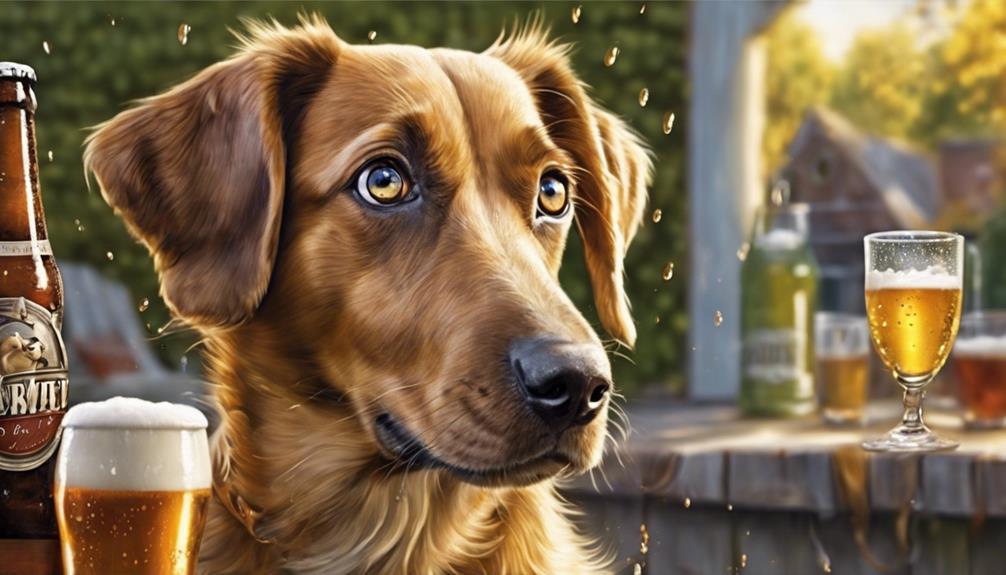
While dogs may enjoy beer due to its sweet taste and appealing aroma, their attraction to this beverage can also be influenced by social factors. Dogs are naturally drawn to the scent and flavor of beer, finding its sweetness enticing. Additionally, dogs are social creatures and often mimic their human family members' behaviors, leading to an interest in beer when they see their owners enjoying it. The social aspect of sharing a beer with their humans can make the experience more appealing to dogs, creating a bond over a shared activity.
- Dogs find the sweet taste of beer attractive.
- The aroma of beer can intrigue dogs.
- Dogs may enjoy beer because their owners do.
- The social aspect of drinking beer with humans can influence dogs' attraction.
- Dogs may associate drinking beer with positive experiences or attention from their owners.
Common Dog Alcohol Poisoning Symptoms
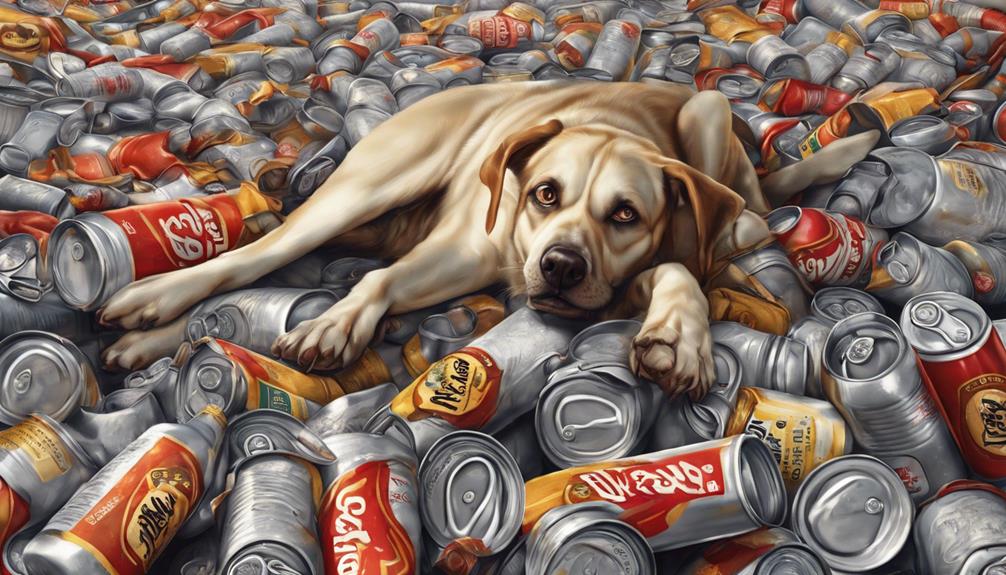
Alcohol poisoning in dogs can exhibit symptoms like vomiting, disorientation, and tremors if they consume beer. These signs indicate a serious health concern that requires immediate veterinary attention.
Recognizing these common alcohol poisoning symptoms is essential for ensuring the well-being of our furry friends.
Symptoms to Watch
We frequently observe signs of alcohol poisoning in dogs, such as vomiting, confusion, and lack of balance. When monitoring your furry companion for possible alcohol toxicity, keep an eye out for the following indications:
- Shaking and convulsions
- Sadness and fatigue
- Dribbling and frailty
- Collapse and reduced breathing rate
- Low blood sugar and low body temperature
If you notice any of these signs in your dog after potential alcohol consumption, it's essential to act promptly. Remember, prompt action can help prevent further complications and safeguard the well-being of your beloved pet.
Immediate Vet Attention
Recognizing common symptoms of alcohol poisoning in dogs is vital for ensuring their well-being and requires immediate veterinary attention. If your dog shows signs such as vomiting, disorientation, lack of coordination, tremors, or seizures after consuming beer or any alcohol, it's important to act quickly.
Monitoring your dog's behavior is key, as these symptoms can indicate a serious issue. Seeking professional help is necessary to address alcohol poisoning in dogs effectively and prevent serious complications. Remember, your furry friend's health is paramount, so don't hesitate to contact your vet if you suspect alcohol poisoning.
Immediate intervention can make a significant difference in your dog's recovery and well-being.
Preventing Your Dog From Drinking Beer
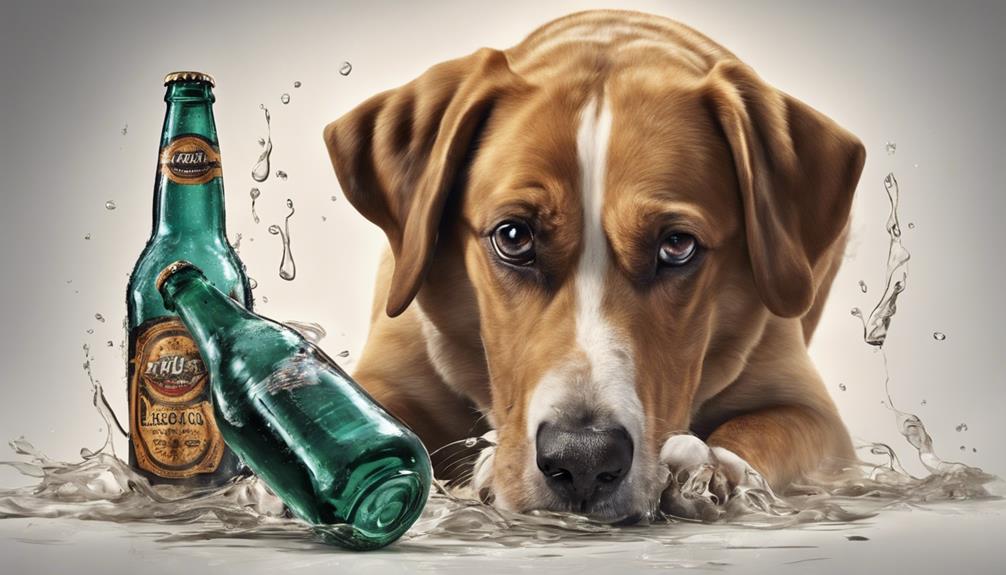
To prevent your dog from drinking beer, it's important to take proactive measures and guarantee a safe environment. Here are some essential tips to make sure your furry friend stays away from alcohol:
- Keep your dog in a separate room or crate when consuming beer to prevent accidental ingestion.
- Store alcoholic drinks securely out of reach of your dog to avoid temptation.
- Never leave alcoholic beverages unattended where your dog can access them.
- Use a glass with a lid for your beer to prevent spills and potential dog consumption.
- Supervise your dog closely when guests are over to make sure they don't consume any alcohol.
Ethanol Concentrations in Drinks
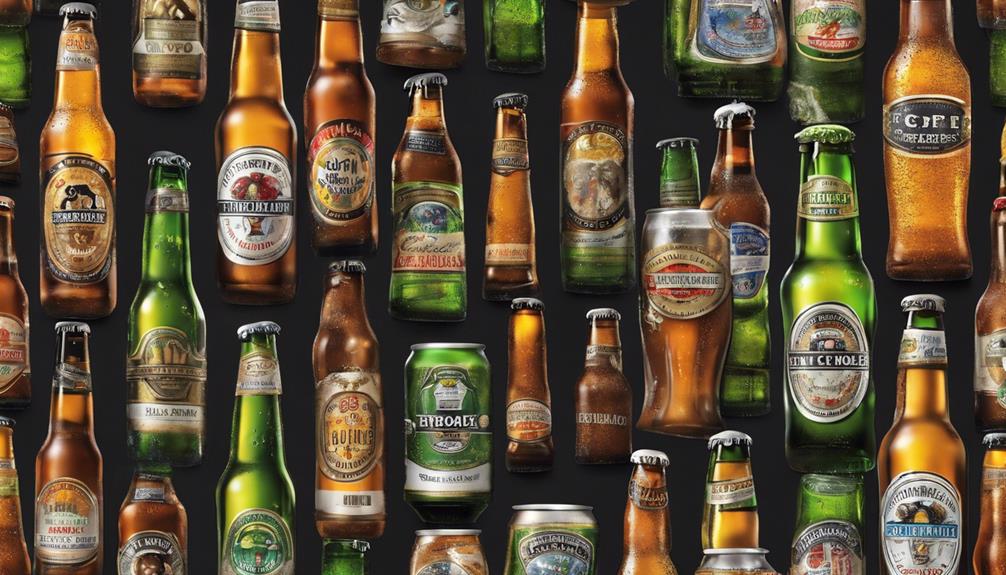
Understanding the varying ethanol concentrations in different alcoholic drinks is essential in safeguarding your dog from potential alcohol toxicity.
Light beer, with 2.5-3.5% ethanol by volume, poses a risk of alcohol poisoning if ingested by dogs. Dogs may also be attracted to fruit-based drinks, cocktails, and ciders, which can contain dangerous levels of ethanol. It's vital to be cautious with these beverages to prevent accidental ingestion by your furry friend.
Additionally, watch out for diet alcoholic beverages or mixers that may include xylitol, a substance harmful to dogs. Being aware of the ethanol content in drinks like beer can help you protect your pet from the dangers of alcohol ingestion.
Is Dog Beer Safe for Dogs?
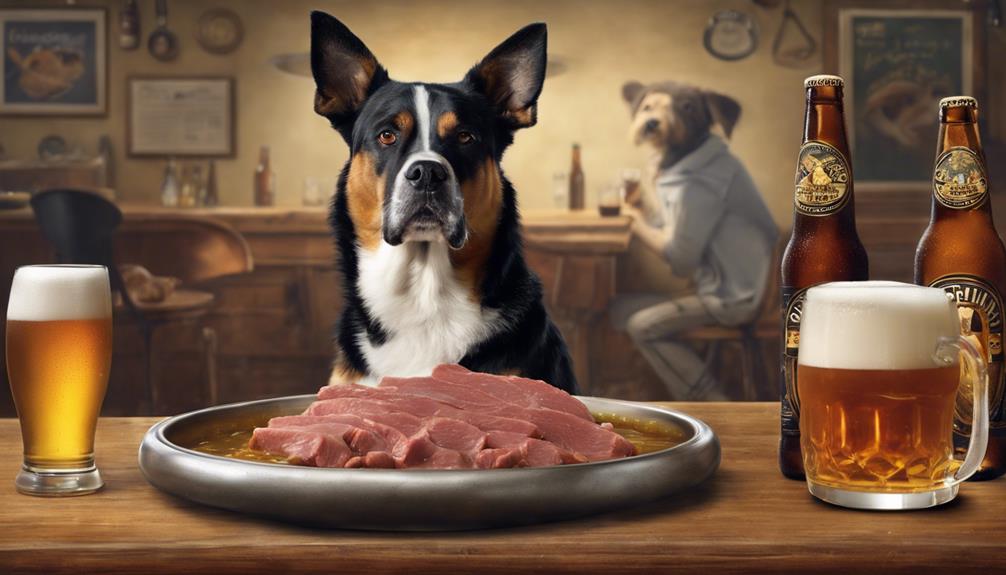
After discussing the ethanol concentrations in drinks, it's important to address the safety of dog beer for our furry companions. Here are some key points to keep in mind when it comes to dog beer:
- Dog beer is alcohol-free, eliminating the risk of alcohol poisoning in dogs.
- It contains beneficial ingredients like glucosamine for joint health and vitamin B for shiny coats.
- Importance is key; dog beer should complement a balanced diet, not replace it.
- It can be served alone or mixed with kibble, but seek advice from a vet if your dog has joint issues.
- When given in moderation, dog beer is generally safe for dogs.
Frequently Asked Questions
Can Dogs Drink a Little Beer?
Yes, dogs shouldn't drink beer under any circumstances. Even a small amount of beer can be harmful to dogs due to its alcohol content. Beer can quickly lead to alcohol poisoning in dogs, causing symptoms like vomiting, diarrhea, and coordination issues.
Ingredients like hops in beer are toxic to dogs and can have essential long-term negative effects on their health. It's important to avoid giving beer to dogs and choose safe alternatives like water or specially formulated dog drinks.
What Happens if a Dog Accidentally Drinks Beer?
If a dog unintentionally consumes beer, it can result in alcohol poisoning and serious health problems. Signs may involve throwing up, having loose stools, and experiencing difficulties in coordination. Components in beer, like hops, can be harmful to dogs. Immediate veterinary care is vital to prevent lasting damage.
To steer clear of these dangers, it's important to keep beer away from dogs and make sure they don't have access to it.
Why Do Dogs Like Beer so Much?
Dogs may like beer for its sweet taste and familiar aroma. The smell and taste of beer can attract dogs, making it an appealing beverage.
Additionally, dogs may enjoy beer because their human family members do. It's a shared experience that draws them in, as dogs are naturally curious creatures. The common presence of beer around them could also contribute to their interest.
These factors combined may explain why dogs like beer so much.
Is Alcohol Bad for Dogs Skin?
Alcohol is harmful to a dog's skin as it can be absorbed quickly, leading to health risks. Even small amounts can pose dangers due to rapid entry into the bloodstream.
It's important to prevent dogs from coming into contact with alcohol to avoid these risks. Keep them away from any products containing alcohol to make sure their skin stays safe and healthy.
Conclusion
To sum up, giving your dog beer isn't safe and can lead to serious health risks. Remember, just because dogs may like the taste of beer doesn't mean it's good for them.
It's important to always keep alcoholic beverages out of reach of your furry friend. As the saying goes, 'An ounce of prevention is worth a pound of cure.'
Keep your dog safe and healthy by avoiding giving them any kind of alcohol.
